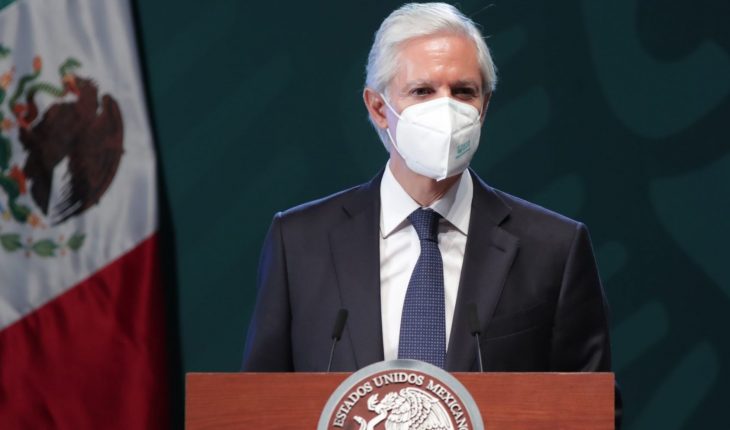In a national context immersed in signals towards the corruption of previous governments, and one year after the elections of Deputies at the federal level, the PRI peacefully navigates its permanence on the digital public scene, while ignoring, accusing and deslindaing the government of Enrique Peña Nieto and his nearest circle.
In less than a month, since the official Twitter accounts of the PRI and the party president, three times have been de-ousted from former officials of the past six years. First on July 16, a day before the extradition to Mexico of the former director of PEMEX, Emilio Lozoya, accused of criminal association, operations with resources of illicit origin and bribery:
3/3 There is no record, e.g. on the current or historical pattern, that Emilio “L” has played a single day in our match. The PRI rejects corruption and its consequences and supports the legitimate causes and demands of civil society to combat it. #TopeHastaDondeTope
— Alejandro Moreno (@alitomorenoc) July 17, 2020
The second time was on August 11, after the Attorney General of the Republic, Alejandro Gertz Manero, announced that Lozoya officially accused Enrique Peña Nieto and Luis Videgaray of having orchestrated bribes made by Lozoya himself to public officials for the approval of energy reform in 2013:
We reaffirm that we are in favour of the fight against corruption and that any public official who has broken the law is sanctioned.
Today’s PRI is not and will not be anybody’s cover.
— PRI (@PRI_Nacional) August 11, 2020
The third was on 19 August, when the PRI, through a letter, was delinted from Lozoya’s illicit activities and announced that it will file a lawsuit for the former official to return “what he improperly received.”
#Comunicado? Emilio Lozoya must pay for his crimes: @alitomorenoc https://t.co/74bEDIdilO pic.twitter.com/FtUTgAei5l
— PRI Communication (@PrensaCENPRI) August 19, 2020
It should be added, as a precedent, that a week before the first delinquency in the Lozoya case, as part of the arrest in the United States of former Chihuahua governor César Duarte, the PRI’s national committee issued a statement annoubing that it would not cover up corrupt people.
But this set of one-off deslindes in the face of the context of the party’s credibility crisis at the national level is barely visible when contrasted with the content of its official Twitter profile, where a line of promotion is systematically supported to local programs and proposals from states such as Colima, State of Mexico, Oaxaca or Campeche, concern is expressed about the pandemic and talks about women and the family in a very recurring way.
The PRI turns its back on the allegations surrounding the Lozoya case. He approaches them with punctual delindes and places a formal discourse on top of it, without any unsteakness. This part of the strategy seems to be to go unnoticed in the digital national arena, with different short, medium and long-term sights. This strategy sediments and flattens some of the perception in socio-public networks. It produces them as a scenario to record its current activity without stress, with plans present and in the future in which there is no room for self-criticism.
Online media coverage. Del Mazo, PRI and Edomex
In addition to social media, it is possible to find out the state of public perception around the PRI in general and Alfredo Del Mazo in particular by analyzing the media coverage that both political actors receive on the internet. This is possible if the digital coverage of such actors is degreased and hierarchical and what Google’s algorithm considers to be the “most preponderant” links around a search term, i.e. the internet pages that are most queried from this search engine when using a set of keywords.
Through the scraper developed by digital methods initiative, Signa_Lab downloaded the terms “Alfredo Del Mazo”, “State of Mexico” and “PRI”, to find out what are the 100 most associated links by Google with each of those terms until August 4, 2020. The databases were categorized and filtered to find the most recurrent link types in these searches.
The most recurrent types of links with the search “Alfredo Del Mazo” were:
44 links to tweets from the governor’s official account
29 media links
8 links to YouTube videos
7 links to the governor’s Facebook page
5 links to Mexico State government sites
The most recurrent types of links to the search “State of Mexico” were:
72 links to Mexico State government sites
13 media links dcommunication
5 links to Wikipedia
The most recurrent types of links to the “PRI” search were:
39 media links
27 links to official PRI sites nationally and locally
6 links to official party page posts on Facebook
5 links to articles from scientific journals that address some kind of party analysis
4 links to tweets from official party accounts nationally and locally
In the following set of visualizations you can filter the binding types and searches; You can also go to each site’s link with a click on the description:
https://public.tableau.com/profile/sl3308#!/vizhome/pri_delmazo_edomex_enlacesGoogle/Historia1?publish=yes
In this segmentation of the most consulted sites around the PRI, Del Mazo and EdoMex, it is striking, on the one hand, the recurrence of the tweets of the Mexican governor, corresponded to the synchronized support it receives with the thousands of Twitter accounts identified in the first part of this report; and on the other hand the appearance of specific links to media such as El Universal, El Financiero, Oráculus, El Heraldo de México, El Sol de Toluca, El País y Milenio, where the hyperlink in the list of most predominant links belongs to the search within the sites of each medium with the result “Alfredo del Mazo”.
This is probably the result of constant monitoring of the governor’s local, national and international media coverage.
It is important to note that media headlines talking about the governor are, in most cases, favorable. This can be said by seeing headlines contain phrases such as “start-up program”, “supports the economy”, “announces support program”, “edo mex advances to orange traffic light”, “the rise of Alfredo del Mazo”, “Alfredo Del Mazo continues with pink salary delivery”, “supports the economy of The Mexichen families”. Several of these notes partially replicate fragments of Alfredo Del Mazo’s government press bulletins.
This data shows that to the network support campaign through the strategy described in the first part of this report, media coverage must be added to Alfredo Del Mazo in many cases complacent and little or nothing critical, which is specifically evident in digital media and in the links most associated by Google to this political character.
This medium- and long-term coverage may result in the public’s perception of a positive image of Del Mazo through one-off messages, such as the fact that the Mexican government’s programmes are functioning properly, that there is an effective strategy of contagion prevention and support for the local economy against the pandemic, and of moving away from corruption and open investigations into key figures from the 2012-2018 sexenium. This is a possible set of medium- and long-term information influence strategies.
The complete research of Signa_Lab can be consulted by clicking on the following link
What we do at Animal Politics requires professional journalists, teamwork, dialogue with readers and something very important: independence. You can help us keep going. Be part of the team.
Subscribe to Animal Politics, receive benefits and support free journalism.#YoSoyAnimal





